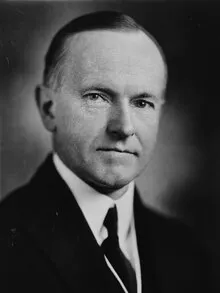8G History Lesson 110 Assignment – Part 2
This is part two of my assignment for this week.
Overview
Calvin Coolidge was our 30th president. He became president after Harding died in office. In my opinion, he was one of the best presidents ever, but he is often forgotten.
Life and Presidency of Coolidge
Calvin Coolidge was born on July 4, 1872. He was an only child, and his parents raised him well. His father was a storekeeper, and taught Calvin many Puritan virtues. Coolidge loved reading and nature as a child.
Coolidge decided to pursue a career in law, starting in 1897. He married Grace Goodhue in 1905. Coolidge was chosen as mayor of Northampton in 1909, and was active in the Massachusetts government. He was a popular republican cantidate for Vice President, and made it onto the ballot with president Harding. They were easily elected into office by a 60 percent popular vote.
Coolidge was thrust into the presidency when Harding unexpectedly died. Harding had left Coolidge a seat surrounded by scandals. However, Coolidge was determined to restore the people’s trust. In 1924, he was nominated for president. He won more than half of the popular vote under the campaign “Keep Cool with Coolidge”.
Coolidge improved the U.S. economy and government in many ways. He was very supportive of business and the free market, and dramatically lowered the income and property tax rates. He also supported smaller government. His Secretary of the Treasury was Andrew Mellon. He believed that lowering taxes would help expand the economy. Coolidge vetoed the McNary Haugen bill 2 times, which Congress was trying to approve. This bill was a plan for the government to subsidize American crops. Coolidge’s move to veto it was a controversial one, and some people were not happy. He was also a supporter of racial equality, and tried to move the U.S. towards it.
Some people criticize Coolidge for his “lack of action”, and blamed the Great Depression on him. They thought that he should have taxed the rich more, and enact more laws that subsidized the economy.
Coolidge oversaw almost a decade of prosperity, and in 1928, he decided not to run again. 1929 saw the election of Herbert Hoover, and the biggest economic crash in United States history.
In summary, Calvin Coolidge was a somewhat controversial president, but I think the things that he did (and the things that he didn’t do) helped the economy and America as a whole.
Reference:
https://www.britannica.com/biography/Calvin-Coolidge

